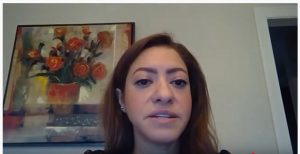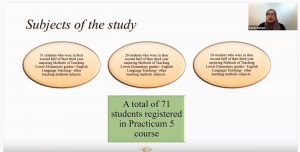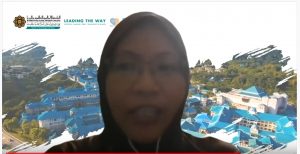Symposium on Advancing Education in Muslim Societies: Five days of scholarly presentations
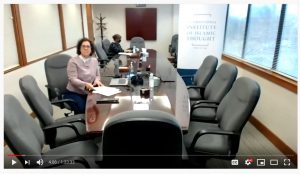
The Symposium on Advancing Education in Muslim Societies started on Wednesday, November 10 to Sunday, November 15, 2020. It was organized by Dr. Shariq Siddiqui and his team at the School of Philanthropy at Indiana University and sponsored by the International Institute of Islamic Thought (IIIT). This was the fourth annual symposium on Muslim philanthropy and civil society. It included presentations which will be developed into peer-reviewed articles for the Journal of Education in Muslim Societies (JEMS) as a collaboration between Indiana University Press and IIIT. Each session consisted of 3-4 speakers over the five days of the symposium and was Chaired and moderated by Dr. Ilham Nasser, Senior researcher and the Director of the Human Development program at IIIT, part of the Advancing Education in Muslim Societies (AEMS) Initiative.
There were some consistent themes in the presentations – the effects of COVID-19 on Islamic schools and Muslim civil society, regional methods of activism in education, and specific tools that were used to evaluate education programs and ideas. Discussions throughout the different days of the symposium ranged from the topic of what makes a school Islamic to the impact of the researchers’ identity in the way they conduct their research. Overall, the symposium was attended by close to 160 people in total and its evaluation surveys documented its success in bringing important topics into the public discussion and highlighting methods to advance education and learning. Following is a brief summary of the different presentation topics.
The first day of the program included presentations by the following: ”The Use of Reflective Journal in the Development of Teaching Skills and Teacher Presentation,” by Kefah A. Barham, An-Naja National University – Palestine which analyzed and summarized her experience with the tool of reflective journaling in the classroom; “Pedagogy of Inquiry for the Promotion of Caring Thinking for Muslim Philanthropy,” by Suheila Hussain, International Islamic University Malaysia in which the idea of pro social behaviors was elaborated upon; “A New Culture of Online Learning in the Middle East,” by Nora El-Bilawi, George Mason University, where methods of online education and context regarding online learning in the Middle East was discussed. (Day 1 video recording)
The second day of the program included four presentations: “The Role of Islamic Schools: Between Parental Perceptions and Institutional Realities, A Case Study,” by Mohamed Awaleh and Reda Mohamed at Illinois State University; “Reflections on Children Voices in E-Learning During COVID-19 Pandemic: What Children Tell us about E-Learning,” by Buad Khales, Al Quds University; “Using Playback Theater with Adolescence in Palestine to Tell Their Stories,” by Khitam Edelbi; “Recognizing Our Brothers and Sisters, Building our Future Leaders: The Mouakhat Peer-Mentoring Program for University Students” by Ahmed Abdelhakim Hachelaf, Higher Normal School at Laghouat – Algeria, and Steve Parks, University of Virginia. (Day 2 video recording)
The third day included the following presentations: “The World Community of Islam and the Re-Imagining of Muslim America” by Khuram Hussein; ”Muslim Immigrant Students and Sense of Belonging” by Muhammad Elhess; “International Education and Civil Society Activism in the Palestinian Occupied West Bank,” by Shelley Wong and Thuy Tu, George Mason University; “Investigating Individual Growth and Change as a Result of International Professional Learning in Pakistani Higher Education,” by Rebecca Fox, Woomee Kim, Tareque Mehdi, George Mason University. (Day 3 video recording)
The fourth day included the following presentations: ”Fluid Borders and Gendered Bordered Crossing in a Rural Muslim community in Pakistan,” by Aisha Khursheed; “Education during the Active War: Exploring Teacher’s Perception and Practice in Syria,” by Maryam Sharifian, James Madison University; ”Social and Emotional Learning in a Multicultural Setting,” by Jabeen Soobratty, University of Mauritius; “Exploring Camping, Program Development for Muslim Youth Leadership,” by Fatima Hendrix, Chicago State University. (Day 4 video recording)
The final day of the program concluded with presentations from the following: “Covid 19 and Islamic Schools in the United States: Challenges, Successes, and Opportunities,” by Sheza Khan; “Holistic Education must finally overcome Subject Area Barriers,“ by Susan Douglas, Indiana University; “Beyond Filos, Teaching Muslim Giving outside the Charity Framework,” by Hussein Rashid. (Day 5 video recording).
Every session of the symposium concluded with a question and answer segment with conversations and dialogue among the presenters and the audience about the different topics and connections between the themes of the program. The symposium and the research presented will add to the role of advancing education in Muslim societies, be that in the US or in Muslim societies around the world.
Recommended Posts
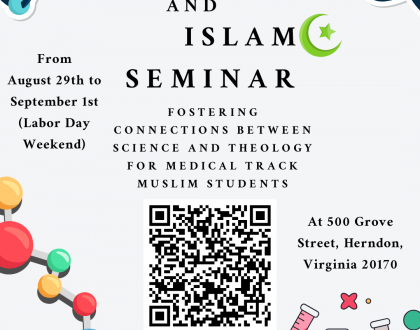
Exploring Bioscience & Islam Seminar Series
May 21, 2025
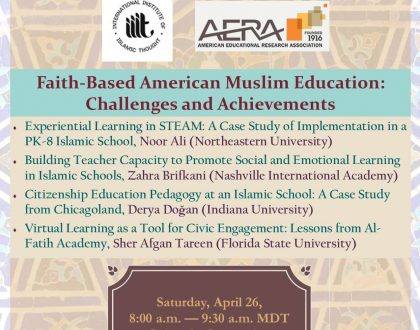
IIIT at AERA 2025 Annual Meeting
April 14, 2025
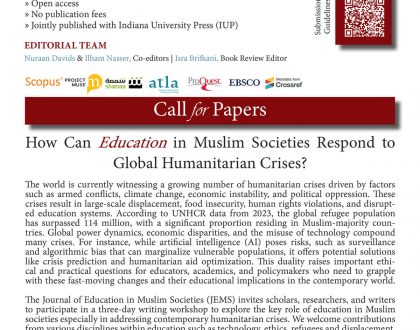
JEMS – Call for papers
April 11, 2025

